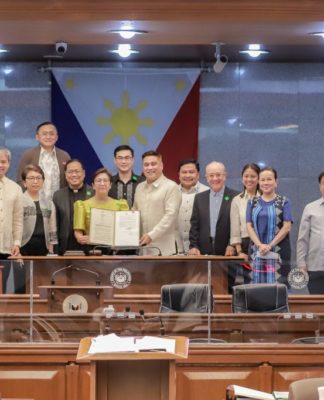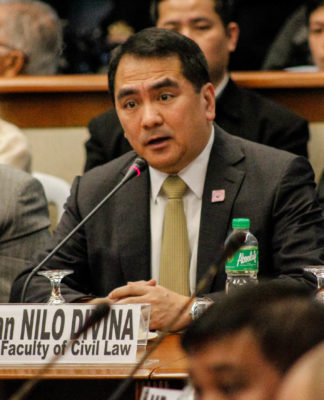NEW US State Department cables released by the Wikileaks website have revealed behind-the-scenes efforts by Americans to impose population-control policies on the Philippines and undermine the Catholic Church’s opposition.
The release of the electronic telegrams, dating back to the 1970s, comes amid numerous legal challenges to the reproductive health (RH) law, which was rammed through Congress by the Aquino administration last December.
The latest Wikileaks release consists of more than 1.7 million records from 1973 to 1974, with about 205,901 records associated with US Secretary of State Henry Kissinger.
These so-called “Kissinger Cables” were launched as part of the WikiLeaks Public Library of US Diplomacy (PlusD), which holds the largest collection of original documents containing confidential information like military intelligence, political schemes and US involvement in every country, according to a Wikileaks press release.
PlusD was “updated from a variety of sources, including leaks, documents released under the Freedom of Information Act (FOIA) and documents released by the US State Department systematic declassification review.”
A telegram from the US Embassy in Manila dated June 17, 1974 claimed demographic trends in the country in 1960s were detrimental to economic and social growth and that population programs should be implemented.
The cable said “conservative attitudes” by Church leaders “must be overcome.”
“Authorities and international agencies recognize gravity of population problem in Philippines through fuller appreciation of problem and commitment to its solution is required of many involved Philippine officials. Additionally, conservative attitudes in rural areas and in the Church hierarchy must be overcome.”
International agencies will continue in providing generous resources, the telegram stated, but there should be “full-fledged Filipino commitment” to the population control policies, requiring “increasing contraceptive acceptor rates.”
“Assuming success of family planning program including eventual attitudinal changes towards family size, Philippine demographic profile over the next twenty to twenty-five years will include a gradual reduction of population growth rate to slightly over two percent,” it said.
But the true motives of the US government had long been revealed with the release of Kissinger’s National Security Study Memorandum (NSSM) 200 in the 1990s. The Kissinger memo advocated abortion and the withholding of US aid to countries that refuse to implement population-control programs.
“The US economy will require large and increasing amounts of minerals from abroad, especially from less developed countries. That fact gives the US enhanced interest in the political, economic and social stability of the supplying countries,” the controversial memo said.
“Wherever a lessening of population pressures through reduced birth rates can increase the prospects for such stability, population policy becomes relevant to resource supplies and to economic interests of the United States.”
The memorandum was written by Kissinger on April 24, 1974 and was addressed to the secretaries of defense and agriculture, the director of Central Intelligence, the deputy secretary of state, and the administrator of the Agency for International Development. It outlined the strategies to promote the anti-population measures.
“No country has reduced its population growth without resorting to abortion,” it stated.
The American government was able to secure the support of the Marcos dictatorship, which pursued a population program.
In a Feb. 4, 1976 telegram, details of the visit of Ambassador Marshall Green, US population coordinator, were stated. Green met President Ferdinand Marcos, National Economic and Development Authority (NEDA) Director General Gerardo Sicat, Social Welfare Secretary Estefania Aldaba-Lim and officials of Marcos Population Commission and the Population Center Foundation.
Green backed the Marcos population program, saying its success would have an “important demonstration effect” on similar programs being implemented around the world. He also noted that the Philippines was the largest beneficiary of USAID population funds.
A cable dated Nov. 5, 1975 reported an interview by the Philippine New Agency with First Lady Imelda Marcos, who was quoted as saying: “Abortion, like Martial Law, is a very bad word. Yet there are times when it becomes necessary, depending on the circumstances…But if abortion and divorce could be treated in a sophisticated and humane manner as our kind of martial law, then I would believe in them.”
The statements of Marcos were said to be a “red flag as far as Church concerned.” The telegram further noted that Archbishop Jaime Cardinal Sin had strongly opposed the passage of divorce bill and called abortion “an abomination.”
“It will be interesting to see whether Sin will feel compelled to reprove Mrs. Marcos for her remarks and, if he does, what her reaction will be.”
Mrs. Marcos has since reversed her position, voting against the RH bill last December.
The RH law, dubbed as a foreign-instigated measure by critics, was passed last December by the Senate with a vote of 13-8 and the House of Representative with a vote of 133-79.
The US government was supportive of the RH bill, as revealed by a 2008 US embassy cable, which said the RH bill “promotes access to family planning along with other health services such as safe delivery, breastfeeding, prevention and treatment of HIV/AIDS and sexually transmitted infections.”
As a leader in population assistance to the country, the American government has increased the annual funds for population and family planning from 13 million dollars to 15 million dollars to lobby the passage of population-control measures, according to the 2008 telegram.
“The U.S. Government continues to be the largest donor in the Philippine population sector supporting efforts to improve local government service delivery and increase private sector contributions to family health outcomes,” it added.
Ironically, the US government’s decision to discontinue the supply of free contraceptives to the Philippines was one of the reasons for the RH bill effort.
“The decision to phase out contraceptive donations was made to support the Philippine Government’s contraceptive self-reliance initiative and to focus US resources on helping develop ways to reach those who currently lack access to family planning services,” it added.

















